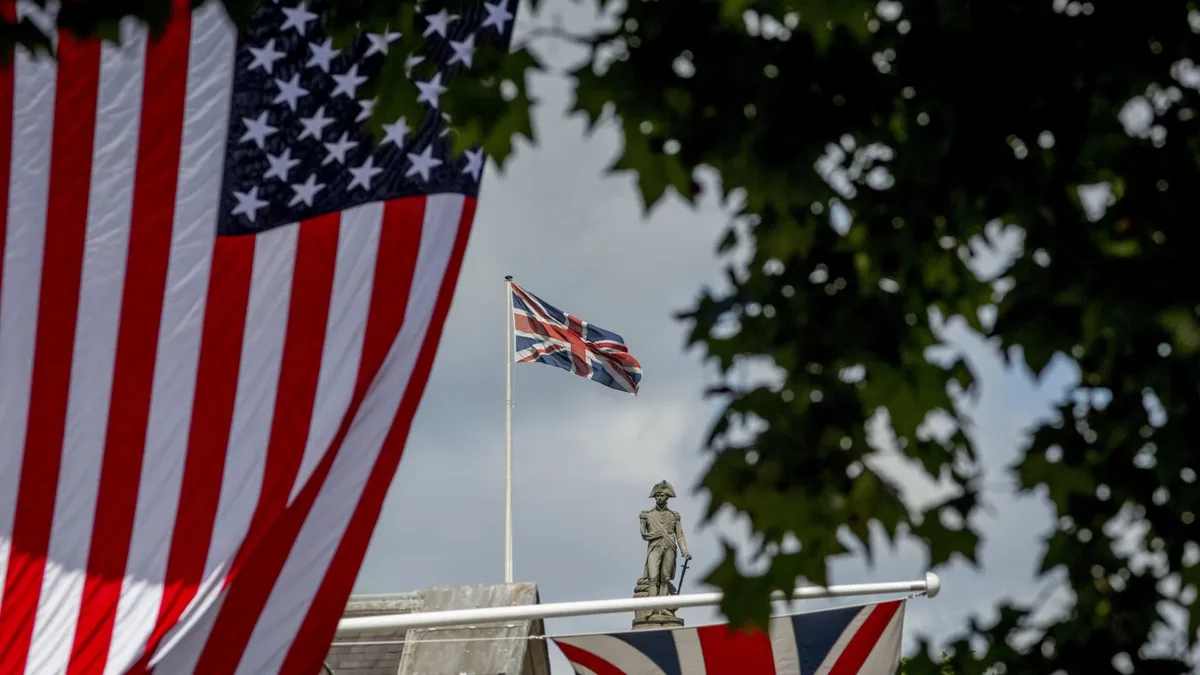
In a significant development in international trade, Britain is reportedly poised to sign a trade deal with the United States. This agreement marks a historic moment as it would make Britain the first country to finalize a trade deal following the U.S.'s announcement of stringent reciprocal tariffs that were implemented in April. According to a report by The New York Times, U.S. President Donald Trump hinted at a briefing regarding the trade deal, scheduled for the day after his announcement, though he did not disclose any specific details.
As of now, both CNBC and other news outlets have reached out to the White House and the British Embassy in Washington for comments, but have yet to receive any response. A representative from the U.K.'s Department for Business and Trade stated that the U.S. is an "indispensable ally" and confirmed that discussions regarding an economic agreement between the U.S. and the U.K. are ongoing. However, the spokesperson emphasized that the department would refrain from commenting on the specifics of the live negotiations or establishing any timelines. "We will continue to take a calm and steady approach to talks and aim to find a resolution to help ease the pressure on UK businesses and consumers," the spokesperson added.
It remains unclear whether both nations will finalize a comprehensive agreement or establish a framework for further negotiations in the upcoming months. The New York Times highlighted this uncertainty in their report. Notably, the U.K. currently operates under a trade deficit with the U.S. and was fortunate to avoid the increased reciprocal tariffs during Trump's "Liberation Day" announcement, although it still faces a baseline 10% levy on certain goods.
On April 15, U.S. Vice President JD Vance expressed optimism about the likelihood of securing a trade deal with the U.K., stating, "I think there's a good chance that, yes, we'll come to a great agreement that's in the best interest of both countries." This statement reflects the sentiment that a mutually beneficial trade agreement is possible and desirable.
However, the trade discussions took a complex turn when President Trump appeared to contradict White House officials on Tuesday. He claimed that the U.S. does not need to sign deals with its trade partners, despite top officials asserting that such agreements were a priority for the administration. "We don't have to sign deals; they have to sign deals with us. They want a piece of our market. We don't want a piece of their market," Trump stated, raising questions about the administration's strategy in ongoing trade negotiations.
For the latest updates on this developing story, read the full report in The New York Times.
This article was contributed to by CNBC's Holly Ellyatt and Erin Doherty, highlighting the importance of the U.S.-U.K. trade relationship and the potential economic implications for both nations.